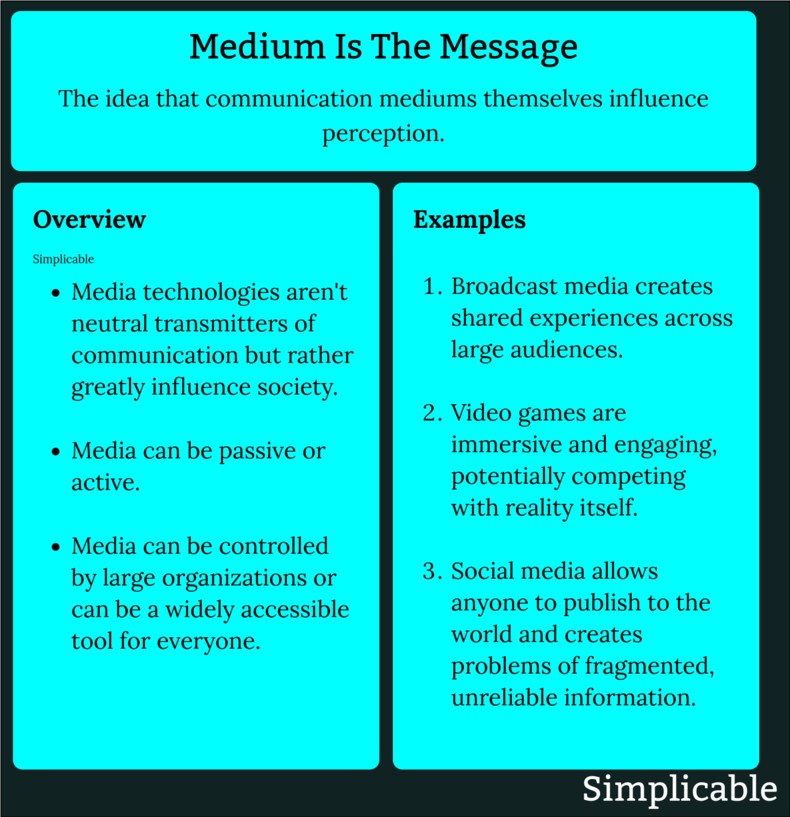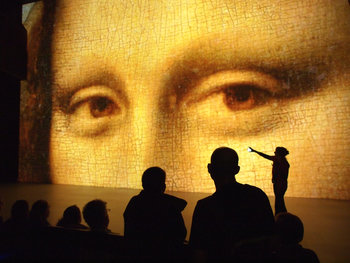
Word of Mouth
For most of history, information was primarily exchanged person-to-person as conversation. This was extremely inefficient and tended to create rumors and misinformation. Communities that depended solely on word of mouth were all relatively primitive as complex societies require far more knowledge and information exchange.Printed Media
The invention of printing allowed for the publication of books, magazines and newspapers. This transformed the world as it greatly expanded the distribution of knowledge, propaganda and news.Electronic Media
Electronic media such as radio and television allowed information to be transmitted in real time directly into the home. Licenses to do this were carefully controlled such that a small elite controlled all channels. This resulted in limited choice such that people watched the same television shows and news programs resulting in shared experiences and a relatively unified culture at the level of nations.Internet Media
The internet allowed for point to point communication and democratized broadcasting whereby anyone could start a blog and theoretically reach the entire planet. This resulted in a fragmentation of shared experience and corresponding fragmentation of culture into small subcultures.Interactive Media
Interactive media such as games tend to be highly engaging. One can imagine a future, where real life can't compete with the attractions of interactive media such that human's become fully emerged in virtual worlds.Summary
The idea that new mediums for communication greatly influence society and culture.
Notes
A medium is a means of communicating such as a conversation, newspaper, radio broadcast, television broadcast, social media app or game| Overview: Medium Is The Message | ||
Type | ||
Definition (1) | The idea that changes to communication medium have a far more profound impact than anything that occurs at the level of a communication channel or media message. | |
Definition (2) | The idea that communication medium tend to shape the content and character of communication. | |
Coined By | Marshall McLuhan in the 1964 book Understanding Media: The Extensions of Man | |
Related Concepts | ||




























